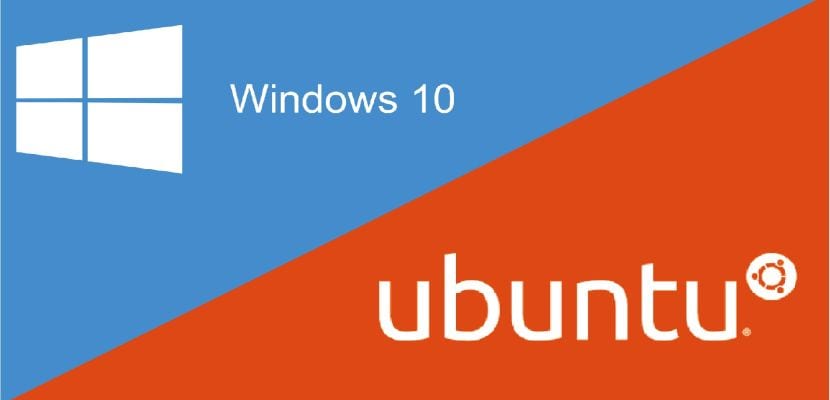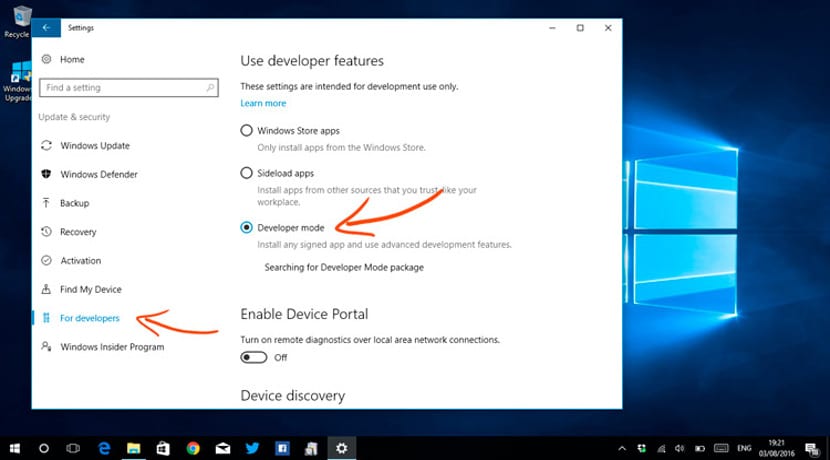
A few hours ago the new Windows 10 update, better known as Windows 10 Anniversary Update, has been available, an update that brings many new features, including the Ubuntu bash that is now available to everyone Windows 10 users.
This will allow we can use applications and elements that are used in Ubuntu from our Windows 10, without having to leave the Microsoft operating system. Here we explain how to enable bash or Ubuntu terminal in our Windows 10 Anniversary Update.
One new thing that we have known recently is that they will only be able to enable users who have a 64-bit versionThat is, users who have a 10-bit Windows 32 or a 32-bit platform will not be able to have bash enabled. And also, of course, we must have Windows 10 Anniversary installed on our computer.
Fulfilling these requirements, to enable bash in Windows 10, first we have to go to Settings-> Security and Updates-> Developers and there activate the «Developer mode«.

Once this is done, we go to the Control Panel and go to uninstall programs. There we go to the function «Activate or deactivate Windows features». After this a small window will appear with a list of functions that will have a box next to it. In this list we look for «Windows Subsystem for Linux»Or«Linux subsystem for Windows«Once found, we mark it, apply the changes and close everything.
Behind this we reboot the system so that Windows makes the pertinent changes. Once the operating system has been restarted, we open the search screen and type "Ubuntu" or "Bash". the application that we can anchor in the menu or simply run to see how the Ubuntu bash is. As you can see, the method to enable the Ubuntu terminal is quite simple and anyone can do it, although Can you do as many things as in Ubuntu? What do you think?